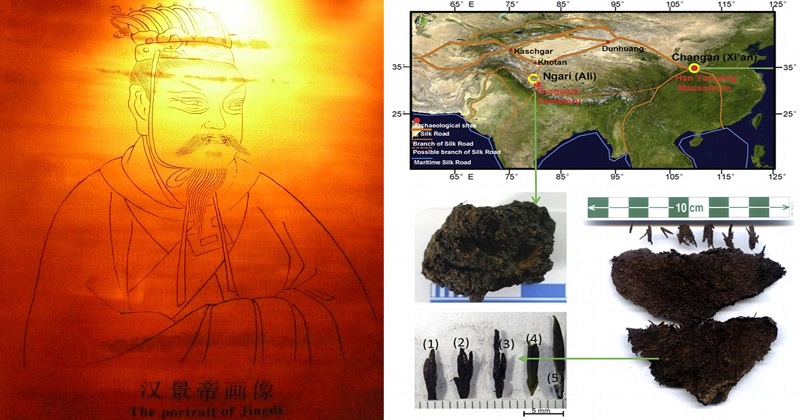
The burial of a Chinese ruler who lived over 2,100 years ago has generated the oldest remains of tea, stated investigators who utilized it to re-date as part of the ancient Asian Silk Road.

The plant remains were recovered from grave excavations around the tomb of Liu Qi, the fourth emperor of the Han dynasty who lived between 188 and 141 BC, and his wife, a group of researchers from China and Britain wrote in the journal Scientific Reports. The ancientest written connection to tea is from the year 59 BC. And the most aged physical stays ever located were hundreds of years younger than the latest discovery, dating from the northern Song Dynasty (960-1,127 AD).

“Our study exposes that tea was drunk by Han Dynasty rulers as early as 2,100? years BP (before present),” wrote the team. They approximated this tea to remains excavated among funeral antiques at Gurgyam Cemetery in Tibet, and dated to about the second or third century AD.

This indicated that tea was already carted from China to central Asia and the Tibetan Plateau several hundred years earlier than earlier documented by around 1,800 years ago, said the researchers. Tea does not extend in Tibet. “This signifies that one branch of the Silk Road handed through western Tibet at that time,” said the researchers.

Post Your Comments